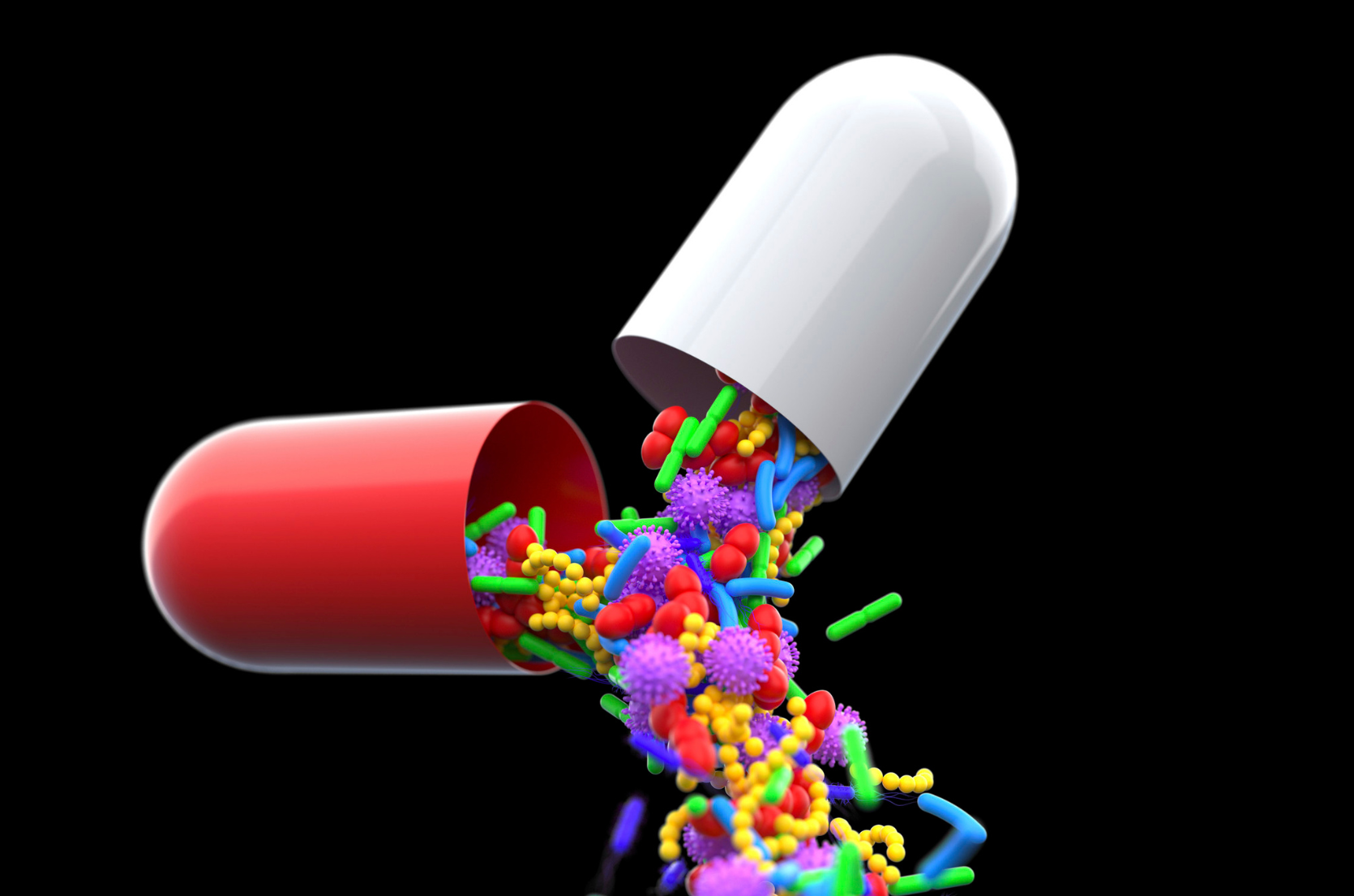
Depression affects approximately 5% of the global adult population, making it the second most prevalent mental disorder worldwide behind anxiety disorders. According to the World Health Organization (WHO), “depression is a leading cause of disability around the world and contributes greatly to the global burden of disease.” Finding an effective, accessible, healthy, and feasible therapeutic approach, therefore, is essential for millions of people worldwide.
Despite its ubiquity, many questions remain unanswered about depression’s pathophysiology and progression. Over the past decade researchers have been increasingly interested in the relationship between depression and the gut microbiota.
What is the Gut Microbiota?
The gut microbiota refers to a complex ecosystem composed of bacteria, fungi, protozoa, and viruses that populate our intestines. It plays a crucial role in numerous metabolic and immune functions and is integral to maintaining our body’s homeostasis. Numerous factors can impact our gut microbiota, including dietary habits/changes, drugs, pollutants, and psychological stressors.
The gut microbiota-brain axis forms a bidirectional highway linking our gut with our brain. This means that the gut can regulate emotional activity in the brain, and the brain can regulate gastrointestinal function. A recent study in the Journal of Pharmacological Research detailed four main insights into the gut-brain axis:
- Gut microbiota dysregulation occurs in depressed patients
- Antidepressants uniquely impact the gut microbiome
- Microbiome influences drug response
- Probiotics, symbiotics, and fecal transplantation reduce depressive symptoms
Research has shown the gut microbiota to be a key player in ensuring homeostasis in our central nervous system, with the brain reciprocally affecting the intestinal microbial composition. As research has established this interconnectedness of our brain and our gut, it stands to reason that if our brain suffers from a disorder (such as depression), our gut would be impacted as well. Not surprisingly, studies have indeed found this to be the case.
In general, depressed patients tend to have more bacteria that cause inflammation and less anti-inflammatory bacteria compared to healthy individuals, depicting the dysregulation of the gut microbiota present in patients with depression.
Research has also uncovered a unique relationship between gut microbiota and antidepressants. Not only is the gut microbiota naturally dysregulated in depressed patients, but antidepressants (such as SSRIs, SNRIs, NASSA, et al.) have been found to uniquely change the composition of the gut microbiota. These changes impact the efficacy, toxicity, absorption, distribution, metabolism, and excretion of common antidepressants impacting the pharmacological intervention itself. Neuropsychiatric drugs, however, have been shown to shape gut microbiota by altering the abundance of specific bacteria present in the intestinal tract. This mutual relationship has been evidenced by numerous animal studies, but only a few observational studies with human subjects have been conducted.
The efficacy of probiotics, symbiotics, and fecal transplantation in reducing depressive symptoms is another key finding. The WHO defines probiotics as ‘…live microorganisms which, when administered in adequate amounts, confer a health benefit on the host.” Symbiotics, on the other hand, are a mixture of probiotics with prebiotic fibers that help probiotics grow. Lastly, fecal transplantation is the process of collecting fecal matter from a healthy host and transplanting it into the intestinal tract of an unhealthy recipient.
It is important to note that most gut microbiota research has been conducted on animal models, limiting the breadth of human studies. However, animal research has yielded promising results. Numerous studies found a diminishing of depressive behaviors, increased social interaction, and reduced anxiety upon administration of probiotics to mice and rats. Furthermore, another study found alleviation of depressive symptoms after the transplantation of fecal matter from a healthy animal donor to a depressed animal recipient. Additionally, numerous studies showed an improvement in depression and anxiety tests and a decrease in gastrointestinal discomfort among rats and mice receiving a fecal transplant from a healthy donor. These findings suggest potential positive effects in humans through probiotics, fecal transplants, and symbiotics, thereby indicating essential avenues for future human research.
As the effects of depression can dramatically affect a person’s ability to function and live a rewarding life, it is important to continue this research. Given the sheer number of people impacted by depression globally and the need for effective treatments, further research with human subjects is needed to shed light on the gut microbiota-brain axis, improving drug efficacy and limiting the side effects of treatments. These innovative strategies of recreating the correct homeostasis of gut microbiota through probiotics, symbiotics, fecal transplants, diets, and more show promising results in improving pharmacological interventions for depression.
The highway between the gut microbiota and depression will hopefully provide insights for innovative diagnostic and therapeutic approaches to treat depression, with meaningful implications for clinical practice and drug development.
Disclaimer: This article is for educational purposes only and is not medical advice. You should consult with your healthcare provider before starting any treatments for any medical conditions.
Marina is an international student from Austria studying medicine at the University of Oxford in the UK. She completed two Bachelors in Psychology and Communication and a master's in Psychology from NYU. She is also a contributing author on multiple healthcare, cardiology, and psychology studies. She is passionate about researching and spreading knowledge on the ketogenic diet due to knowing first-hand the tremendous benefits of the diet for various illnesses, including epilepsy.


